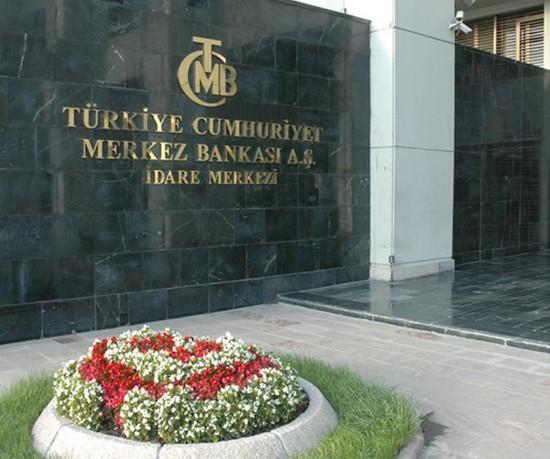The Central Bank kept the policy rate steady at 14% at the Monetary Policy Committee (PPK) meeting in line with the market expectations.
In a statement the bank emphasized that the PPK will continue to implement the strengthened macroprudential policy set decisively and take additional measures when needed.
Here is the bank’s statement:
>> “The escalating geopolitical risks were adversely realized in the first half of the year and caused a weakening in the worldwide economic activity. Global growth forecasts for the upcoming period are being revised downwards. Increasing concern over global food security driven by trade restrictions, high course of commodity prices, the persistence of supply constraints in some sectors, particularly in food and energy, and high transportation costs have led to producer and consumer price increases internationally. The effects of high global inflation on inflation expectations and international financial markets are closely monitored. Moreover, central banks in advanced economies emphasize that the rise in inflation may last longer than previously anticipated due to rising energy prices and imbalances between supply and demand. The divergence in monetary policy steps and communications of central banks in advanced economies increased due to their diverse economic outlook. It is observed that central banks have increased their efforts to develop new supportive measures and tools to cope with the increasing uncertainties in financial markets.”
>> “Level of capacity utilization and other leading indicators show that robust growth in the beginning of the year continues in the second quarter as well, with the support of external demand. While share of sustainable components of economic growth increases with tourism-related improvements, risks on current account balance due to energy prices continue. Sustainable current account balance is important for price stability. Credit growth and allocation of funds for real economic activity purposes are closely monitored. The Committee will continue to implement the strengthened macroprudential policy set decisively and take additional measures when needed.”
>> “Increase in inflation is driven by rising energy costs resulting from geopolitical developments, temporary effects of pricing formations that are not supported by economic fundamentals, strong negative supply shocks caused by the rise in global energy, food and agricultural commodity prices. The Committee expects disinflation process to start on the back of measures taken and decisively implemented for strengthening sustainable price and financial stability along with the decline in inflation owing to the base effect and the resolution of the ongoing regional conflict. Accordingly, the Committee has decided to keep the policy rate unchanged. To create an institutional basis for sustainable price stability, the comprehensive review of the policy framework continues with the aim of encouraging permanent and strengthened liraization in all policy tools of the CBRT. The collateral and liquidity policy actions, of which the review process is finalized, will continue to be implemented to strengthen the effectiveness of the monetary policy transmission mechanism.”
>> “The CBRT will continue to use all available instruments decisively within the framework of liraization strategy until strong indicators point to a permanent fall in inflation and the medium-term 5 percent target is achieved in pursuit of the primary objective of price stability. Stability in the general price level will foster macroeconomic stability and financial stability through the fall in country risk premium, continuation of the reversal in currency substitution and the upward trend in foreign exchange reserves, and durable decline in financing costs. This would create a viable foundation for investment, production and employment to continue growing in a healthy and sustainable way.”
>> “The Committee will continue to take its decisions in a transparent, predictable and data-driven framework.”









